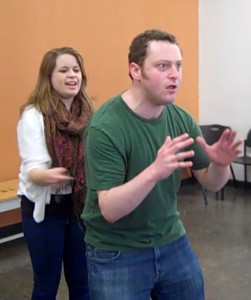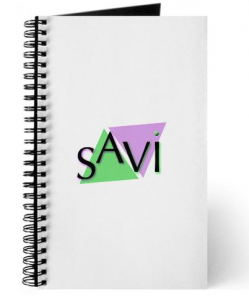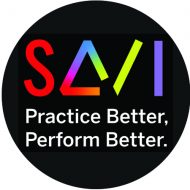 It’s summertime, and the living is easy!
It’s summertime, and the living is easy!
Actually, summertime can be a challenging time for serious singing actors. During summer, all the normal routines seem to fly out the window. If you’re a student, that means classes and lessons are probably on hold. “No more pencils, no more books” – well, that may be what children chant in the summertime, but if you’re a serious singing actor – that is, someone who’s really committed to a journey of continuous growth and improvement – the lack of structure can feel disorienting, a bit of a letdown.
Or you may have a whole new schedule – a summer job (full-time or part-time), maybe in the theater, but maybe not. That means new people in authority, new routines, a new environment. Stimulating, yes, but easy? Probably not!
Either way, in the summertime it’s distressingly easy to lose your edge as a singing actor. Through the fall, the winter and the spring, you’ve trained like an Olympian, devoting countless hours to studying, preparing, practicing, rehearsing and performing. With the structured activity of classes, lessons and projects to spur you on and organize your time, you’re “gaining from your training,” acquiring greater mastery of techniques, skills and repertoire, going deeper and higher and bigger than you’ve ever gone.
Come the summer – big let-down, right? And after you’ve taken a break, had a bit of rest, visited the fridge once too often, you find yourself itching to get back to work.
Good news! There are plenty of things that you can do in the summertime to keep your edge. Even without a teacher, a class or a rehearsal to go to, there are things you can do at home (or pretty much anywhere) that will not only help you maintain crucial skills but keep you growing, exploring and discovering new things. Here’s a short list of five things you can do to keep your edge this summer:
1. Make the time.
Pick out times in the week you’re willing to dedicate to continued training. It doesn’t have to be a huge commitment – start small, with something you can manage easily. Three 30-minute time slots in your week. Put them on your calendar – not only when, but where. Make a date with yourself, and honor your commitment. Studies have shown that people who make a specific commitment about when and where they’ll practice are much likelier to actually practice; otherwise, your desire to practice hangs in the air like an unresolved chord, making you antsy and anxious for reasons you can’t quite put your finger on.
 Track the time you put in in your calendar or journal, and give yourself some love when you stick to the plan. Or here’s an idea – find yourself a practice buddy, someone who’s as crazy as you are about singing acting. When you make your schedule, tell your plan to your buddy, and have them reciprocate. Then report your progress, truthfully, and support your buddy in their efforts to keep their own commitments. Social media tools like Facebook make it possible for you to have the same kind of support network you benefitted from during the school year.
Track the time you put in in your calendar or journal, and give yourself some love when you stick to the plan. Or here’s an idea – find yourself a practice buddy, someone who’s as crazy as you are about singing acting. When you make your schedule, tell your plan to your buddy, and have them reciprocate. Then report your progress, truthfully, and support your buddy in their efforts to keep their own commitments. Social media tools like Facebook make it possible for you to have the same kind of support network you benefitted from during the school year.
2. Work it out.
The singing actor is like an Olympic athlete. Many of the skills that you need are the kind that are acquired through patient repetition over the long haul – in other words, you’ve got to train to gain, and if you don’t use it, you lose it. A comprehensive workout will get you going vocally, physically, emotionally, even in your face and eyes, so that you’re continuing to strengthen and tone those “organs of expression.” The SAVI Workout is a great place to start; it’s a proven sequence of activities that engage you fully, testing your expressive range, stamina and coordination. Use it with your favorite vocal exercises or pieces of songs you know.
Check out the SAVI Workout NOW!
Your workout should be intense but brief. You’ll gain more from ten or fifteen vigorous, focused minutes working through the steps of a structured workout than you will from the same amount of time spent purposelessly singing through songs or scales. If you’ve slotted half an hour into your day, devote at least ten of those minutes to working out. If it feels good, you don’t have to cut it short, but it’s better to establish a compact, steady routine than to go on a practice “binge” followed by a prolonged period of inactivity. Read more about conditioning and “train to gain” on the SAVI Singing Actor site.
3. Tell a story.
For the SAVI singing actor, it’s axiomatic: “When I sing, I will create behavior that communicates the dramatic event phrase by phrase.” That means that every song is a story, and your proficiency at turning SONGS into STORIES is the number-one skill you need to “communicate the dramatic event.” You can practice this with little more than your imagination and a place to write things down; a summer journal would be a cool tool to use for this, or a note-taking app like Evernote for your computer.
 Pick a song, any song – one you heard on the radio or the internet, one that came up in conversation, one that you think you’d like to work on. Spend part of that practice time examining that song and looking for how to turn it into a story with you as the principal character. First, do the detective work, gathering the facts and details that will give an indication of the dramatic circumstances of your chosen song. Those facts will start to reveal a bigger picture, a situation or event where the singer is center stage. Use your artistic imagination to fill in the details, all the while looking for ways to make those circumstances vivid and meaningful for you personally. Trying writing a paragraph that begins, “This is a story about ….” or better yet, “This is a story about me.” The good news is, this is fun work that can occupy your thoughts any time, any where, and it’s valuable work you can do on any song.
Pick a song, any song – one you heard on the radio or the internet, one that came up in conversation, one that you think you’d like to work on. Spend part of that practice time examining that song and looking for how to turn it into a story with you as the principal character. First, do the detective work, gathering the facts and details that will give an indication of the dramatic circumstances of your chosen song. Those facts will start to reveal a bigger picture, a situation or event where the singer is center stage. Use your artistic imagination to fill in the details, all the while looking for ways to make those circumstances vivid and meaningful for you personally. Trying writing a paragraph that begins, “This is a story about ….” or better yet, “This is a story about me.” The good news is, this is fun work that can occupy your thoughts any time, any where, and it’s valuable work you can do on any song.
If you missed it, I recently wrote about a new book called “Dramatic Circumstances” that is a great summer read and an inspiring guide for this kind of work.
4. Break it down.
If you haven’t discovered this yet for yourself, take it from me: you sing better when your work is specific, and that means you have to work “phrase by phrase.” Sounds pretty straightforward, yes? And yet it takes a while to get in the habit of breaking a song down, seeing it as a series of opportunities instead of a shapeless blob of mood. You’ve got to “ding it before you sing it” – that is, methodically examine the text of the song to determine where the phrases begin, the places where the opportunity to create behavior is especially strong. That means writing out your song lyric (hello, summer journal!) and marking up the text at the start of each phrase, or copying the individual phrases onto 3×5 cards. (I’ve got a video tutorial coming soon about this amazing and powerful technique!)
 If this talk of “dinging and singing” seems unfamiliar, you might want to read through some of the tutorial pages on the SAVI Singing Actor site that walk you through elements of the technique, like this page about specificity.
If this talk of “dinging and singing” seems unfamiliar, you might want to read through some of the tutorial pages on the SAVI Singing Actor site that walk you through elements of the technique, like this page about specificity.
5. Go exploring.
Summertime offers a wonderful opportunities to experience something different, to change up your routine. Try singing using sounds you’ve never tried, in places you’ve never sung, at times of day you wouldn’t usually dream of singing. Sing songs that you’ve always loved, but make them different – sing a slow song fast, a happy song sad, a beautiful song crazy and weird. Sing songs by imitating and exaggerating the behavior of other performers you’ve seen on video, like a funhouse mirror, or like playing dress-up. Sing songs that aren’t from musicals, and songs from musicals you’ve never heard of. Sing to your dog, to the stars, to the video camera in your phone. Take big risks, make big mistakes, and enjoy the freedom that summertime brings. There’s never enough time to explore, but summertime gives you a big bonus in this department.
There you go, five things. Do them routinely, regularly, three days a week at least. Plan when and where you’ll do it, and log it when you do. Give your “organs of expression” a regular workout, along with your singer’s imagination and your detective skills. If you don’t use them, you’ll lose them!
The SAVI Savant writes weekly with tips, tools and insights for the serious singing actor. Sign up for the SAVI Singing Actor newsletter to get weekly updates by email. Did this article seem useful to you? Please leave a comment!
